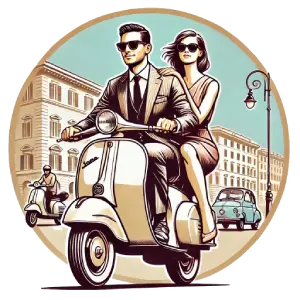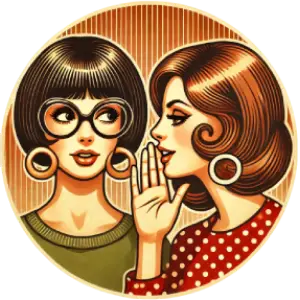Gli Aggettivi Descrittivi in Italiano: Guida Completa per Principianti
Gli aggettivi descrittivi sono una delle categorie grammaticali più importanti e versatili della lingua italiana. Questi aggettivi descrivono e qualificano le caratteristiche, le qualità e le proprietà di un sostantivo, che può riferirsi a una persona, un oggetto, un luogo, un’azione o una situazione. La loro funzione principale è quella di arricchire il significato del sostantivo che modificano, aggiungendo dettagli che lo distinguono da altri sostantivi simili. Per esempio:
Descriptive adjectives are one of the most important and versatile grammatical categories in the Italian language. These adjectives describe and qualify the characteristics, qualities, and properties of a noun, which can refer to a person, object, place, action, or situation. Their main function is to enrich the meaning of the noun they modify, adding details that distinguish it from other similar nouns. For example:
- Un “gatto” (a “cat”) è semplicemente un animale generico, ma un “gatto bianco” (a “white cat”) è un gatto che ha una qualità particolare che lo fa distinguere da altri gatti.
- Un “albero alto” (a “tall tree”) si riferisce a un albero con una caratteristica specifica (l’altezza), mentre un “albero verde” (a “green tree”) ci dice qualcosa sul suo colore.
– Un “gatto” (a “cat”) is simply a generic animal, but un “gatto bianco” (a “white cat”) is a cat that has a particular quality that makes it stand out from other cats. – Un “albero alto” (a “tall tree”) refers to a tree with a specific characteristic (height), while un “albero verde” (a “green tree”) tells us something about its color.
Gli aggettivi descrittivi, quindi, non solo modificano il sostantivo ma influenzano anche come viene percepito il messaggio, aggiungendo sfumature di significato più dettagliate e precise.
Descriptive adjectives, therefore, not only modify the noun but also affect how the message is perceived, adding more detailed and precise nuances of meaning.
Genere e Numero degli Aggettivi Descrittivi
In italiano, l’accordo tra l’aggettivo e il sostantivo a cui si riferisce è essenziale. Gli aggettivi descrittivi devono concordare con il sostantivo nel genere (maschile o femminile) e nel numero (singolare o plurale). Questo significa che l’aggettivo cambia la sua forma a seconda del sostantivo che modifica.
In Italian, the agreement between the adjective and the noun it refers to is essential. Descriptive adjectives must agree with the noun in gender (masculine or feminine) and number (singular or plural). This means that the adjective changes its form depending on the noun it modifies.
Esempi di concordanza:
Examples of agreement:
- Un vestito vecchio (an old dress) (singolare, maschile)
- Una casa vecchia (an old house) (singolare, femminile)
- Dei vestiti vecchi (old dresses) (plurale, maschile)
- Delle case vecchie (old houses) (plurale, femminile)
– Un vestito vecchio (an old dress) (singular, masculine) – Una casa vecchia (an old house) (singular, feminine) – Dei vestiti vecchi (old dresses) (plural, masculine) – Delle case vecchie (old houses) (plural, feminine)
Classi degli Aggettivi Descrittivi
Gli aggettivi descrittivi si dividono in tre classi diverse a seconda delle loro desinenze. Ogni classe segue regole grammaticali specifiche che determinano la forma dell’aggettivo in base al sostantivo che modifica.
Descriptive adjectives are divided into three different classes depending on their endings. Each class follows specific grammatical rules that determine the form of the adjective based on the noun it modifies.
Prima Classe: Aggettivi con Quattro Desinenze
Gli aggettivi della prima classe hanno quattro forme: una per il singolare maschile, una per il singolare femminile, una per il plurale maschile e una per il plurale femminile.
Adjectives in the first class have four forms: one for the singular masculine, one for the singular feminine, one for the plural masculine, and one for the plural feminine.
Esempi:
Examples:
- Un abito nuovo (a new dress) (singolare, maschile)
- Una casa nuova (a new house) (singolare, femminile)
- Dei libri nuovi (new books) (plurale, maschile)
- Delle case nuove (new houses) (plurale, femminile)
– Un abito nuovo (a new dress) (singular, masculine) – Una casa nuova (a new house) (singular, feminine) – Dei libri nuovi (new books) (plural, masculine) – Delle case nuove (new houses) (plural, feminine)
Seconda Classe: Aggettivi con Due Desinenze
Gli aggettivi della seconda classe hanno solo due desinenze: -e per entrambi i generi al singolare, e -i per entrambi i generi al plurale.
Adjectives in the second class have only two endings: -e for both masculine and feminine singular, and -i for both masculine and feminine plural.
Esempi:
Examples:
- Un uomo forte (a strong man) (singolare, maschile)
- Una donna forte (a strong woman) (singolare, femminile)
- Degli uomini forti (strong men) (plurale, maschile)
- Delle donne forti (strong women) (plurale, femminile)
– Un uomo forte (a strong man) (singular, masculine) – Una donna forte (a strong woman) (singular, feminine) – Degli uomini forti (strong men) (plural, masculine) – Delle donne forti (strong women) (plural, feminine)
Terza Classe: Aggettivi con Desinenza -a
Gli aggettivi della terza classe terminano in -a per entrambe le forme singolari maschile e femminile, ma cambiano al plurale, dove la desinenza diventa -i per il maschile e -e per il femminile.
Adjectives in the third class end in -a for both masculine and feminine singular forms, but change in the plural, where the ending becomes -i for the masculine and -e for the feminine.
Esempi:
Examples:
- Un uomo egoista (a selfish man) (singolare, maschile)
- Una donna egoista (a selfish woman) (singolare, femminile)
- Degli uomini egoisti (selfish men) (plurale, maschile)
- Delle donne egoiste (selfish women) (plurale, femminile)
– Un uomo egoista (a selfish man) (singular, masculine) – Una donna egoista (a selfish woman) (singular, feminine) – Degli uomini egoisti (selfish men) (plural, masculine) – Delle donne egoiste (selfish women) (plural, feminine)
Aggettivi Invariabili
Alcuni aggettivi non cambiano, indipendentemente dal genere o dal numero del sostantivo che modificano. Questi aggettivi si dicono “invariabili”, il che significa che mantengono la stessa forma non importa se si riferiscono a un sostantivo maschile o femminile, o se il sostantivo è singolare o plurale. Per esempio, alcuni colori sono invariabili.
Some adjectives do not change, regardless of the gender or number of the noun they modify. These adjectives are said to be “invariable,” which means that they retain the same form no matter whether they refer to a masculine or feminine noun, or whether the noun is singular or plural. For example, some colours are invariable.
Esempi di aggettivi invariabili: Rosa (pink), blu (blue), marrone (brown)
Examples of invariable adjectives: Rosa (pink), blu (blue), marrone (brown)
- Due vestiti rosa (two pink dresses)
- Un cielo blu (a blue sky)
- Una giacca marrone (a brown jacket)
- Pari (even), dispari (odd)
- Un numero pari (an even number)
- Due numeri dispari (two odd numbers)
- Degli uomini perbene (well-behaved men)
- Delle donne perbene (well-behaved women)
– Due vestiti rosa (two pink dresses) – Un cielo blu (a blue sky) – Una giacca marrone (a brown jacket) – Pari (even), dispari (odd) – Un numero pari (an even number) – Due numeri dispari (two odd numbers) – Degli uomini perbene (well-behaved men) – Delle donne perbene (well-behaved women)
Accordo dell’Aggettivo con Più Sostantivi
Quando un aggettivo si riferisce a più di un sostantivo, l’accordo segue il genere e il numero dei sostantivi:
When an adjective refers to more than one noun, the agreement follows the gender and number of the nouns:
- Se tutti i sostantivi sono maschili, l’aggettivo sarà nella forma plurale maschile:
- Paolo e Gianni sono stanchi (Paolo and Gianni are tired).
- Se tutti i sostantivi sono femminili, l’aggettivo sarà nella forma plurale femminile:
- Laura e Bruna sono stanche (Laura and Bruna are tired).
- Se i sostantivi sono di generi diversi, l’aggettivo sarà nella forma plurale maschile:
- Laura e i suoi amici sono stanchi (Laura and her friends are tired).
– If all the nouns are masculine, the adjective will be in the plural masculine form: – Paolo e Gianni sono stanchi (Paolo and Gianni are tired). – If all the nouns are feminine, the adjective will be in the plural feminine form: – Laura e Bruna sono stanche (Laura and Bruna are tired). – If the nouns are of different genders, the adjective will be in the plural masculine form: – Laura e i suoi amici sono stanchi (Laura and her friends are tired).
In alcuni casi, se l’accordo con il sostantivo più vicino potrebbe creare confusione, l’aggettivo può essere ripetuto:
In some cases, if the agreement with the closest noun could create confusion, the adjective can be repeated:
- Ho comperato un cappotto e una giacca neri (I bought a coat and a jacket in black).
- Ho comperato scarpe e guanti neri (I bought shoes and gloves in black).
– Ho comperato un cappotto e una giacca neri (I bought a coat and a jacket in black). – Ho comperato scarpe e guanti neri (I bought shoes and gloves in black).
Posizione dell’Aggettivo Descrittivo
La posizione dell’aggettivo in una frase non è mai casuale e influenza significativamente il significato della frase stessa.
The position of the adjective in a sentence is never random and significantly affects the meaning of the sentence itself.
- Aggettivo dopo il sostantivo: Quando l’aggettivo è posto dopo il sostantivo, tende a indicare una qualità distintiva, specifica o restrittiva. Per esempio: un libro interessante (an interesting book) – un libro con una qualità specifica.
- Aggettivo prima del sostantivo: Quando l’aggettivo è posto prima del sostantivo, ha generalmente un valore più generale o ornamentale. Per esempio: un interessante libro (an interesting book) – un libro che è interessante ma non necessariamente distinto da altri libri.
– Adjective after the noun: When the adjective is placed after the noun, it tends to indicate a distinctive, specific, or restrictive quality. For example: un libro interessante (an interesting book) – a book with a specific quality. – Adjective before the noun: When the adjective is placed before the noun, it generally has a more general or ornamental value. For example: un interessante libro (an interesting book) – a book that is interesting but not necessarily distinguished from other books.
Alcuni aggettivi possono cambiare completamente il loro significato a seconda della loro posizione:
Some adjectives can completely change their meaning depending on their position:
- Un buon uomo (a good man – semplice)
- Un pover’uomo (a poor man – pietoso, sfortunato)
- Una vecchia amica (an old friend – un’amica di lunga data)
- Un’amica vecchia (an old friend – anziana)
– Un buon uomo (a good man – simple) – Un pover’uomo (a poor man – pitiable, unfortunate) – Una vecchia amica (an old friend – a long-time friend) – Un’amica vecchia (an old friend – elderly)
Aggettivi Alterati
Gli aggettivi alterati esprimono diverse sfumature di significato attraverso l’uso di suffissi diminutivi, accrescitivi o peggiorativi. Sebbene questo argomento meriti una lezione separata, lo riconosciamo brevemente qui.
Altered adjectives express different shades of meaning through the use of diminutive, augmentative, or pejorative suffixes. Although this topic deserves a separate lesson, we’ll just briefly acknowledge it here.
Esempi:
Examples:
- Furbo (smart) può diventare furbetto (sly) (un tipo minore di furbizia) o furbacchione (sly dog) (una connotazione negativa).
- Grande (big) può diventare grandissimo (very big) o grande (a big statue vs. a large statue).
– Furbo (smart) can become furbetto (sly) (a minor type of smartness) or furbacchione (sly dog) (a negative connotation).– Grande (big) can become grandissimo (very big) or grande (a big statue vs. a large statue).
Conclusione
Gli aggettivi descrittivi sono essenziali nella lingua italiana e contribuiscono notevolmente all’espressione di concetti complessi, arricchendo la lingua con sfumature di significato. Comprendere le regole grammaticali e le loro applicazioni permette un uso preciso e articolato degli aggettivi, migliorando la capacità di comunicare efficacemente in italiano.
Descriptive adjectives are essential in the Italian language and greatly contribute to the expression of complex concepts, enriching the language with nuances of meaning. Understanding the grammatical rules and their applications allows for precise and articulate use of adjectives, improving the ability to communicate effectively in Italian.
Il seguente quiz è riservato agli iscritti del nostro blog. Se desiderate ricevere aggiornamenti e lezioni gratuite come questa, potete iscrivervi gratuitamente qui sotto. Il quiz è un ottimo modo per progredire e migliorare il vostro italiano. Iscrivetevi gratuitamente e iniziate a studiare con noi!
The following quiz is reserved for subscribers of our blog. If you would like to receive updates and free lessons like this one, you can subscribe for free below. The quiz is a great way to progress and improve your Italian. Subscribe for free and start studying with us!
(continues …)
This is a “freemium” quiz.
Log in or subscribe at no cost.
Get new free Italian language quizzes and your results in your inbox.
Descriptive Adjectives in Italian
Quiz

Please log in or subscribe to read the blog and try the quiz
Login
Subscribe
- Access to our “freemium” content: lessons and quizzes
- Get new lessons in your inbox
- Get your quiz score by email
–







